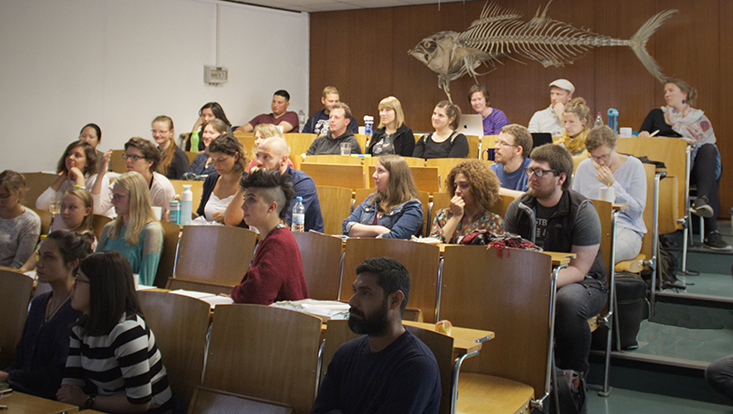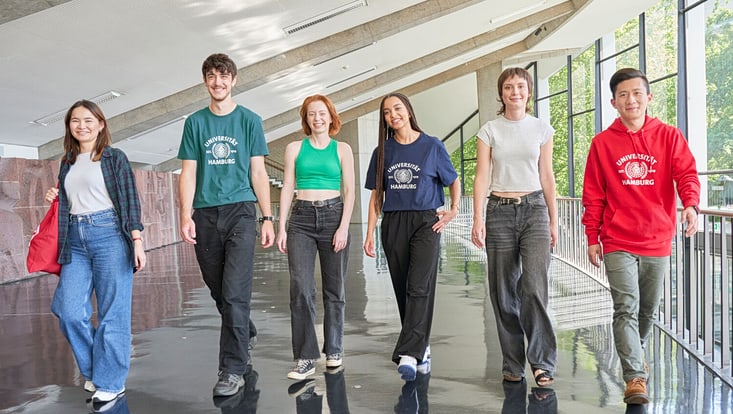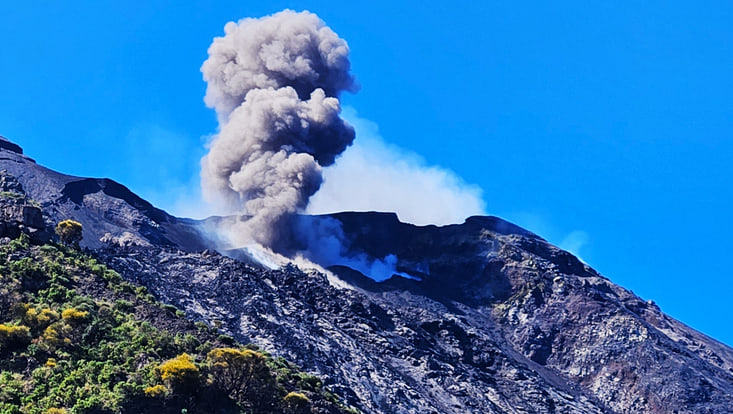Marine biology: young researchers benefit from first “IMF Junior Day”
18 July 2019, by CEN Universität Hamburg

Photo: Benjamin Lau
What role do different plankton species play in a changing climate and carbon cycle? How are fish affected by increasing acidification and rising ocean temperatures? When will we arrive at a point where fish stocks are beyond recovery from fishing pressure? And how can machine learning help us to identify different species of marine life using image processing? All these were topics of the first "IMF Junior Day" at the Institute of Marine Ecosystem and Fishery Science (IMF) at Universität Hamburg.

Twelve young scientists presented their work. "A good opportunity to train in front of a broad audience, build confidence and receive feedback," says Dr. Xochitl Cormon, who initiated the day. In the plenum, the participants discussed the individual contributions and later shared their experiences and suggestions. The further development was also discussed with more experienced scientists, who contributed their assessment. "At the Junior Day, we can support each other in advancing our research. We exchange ideas intensively and this also promotes the transfer between the various working groups at our institute," explains Dr. Vera Köpsel, who has contributed her scientific experience to the feedback process for the young researchers.

Today’s oceans are changing rapidly: climate change is altering temperatures and water chemistry, and human activities such as fishing pressure and pollution are having serious impacts on the ecosystem. At the IMF, researchers are investigating these developments through methods such as laboratory experiments, modelling and talking with people from the fisheries sector. "The exchange of knowledge is an important prerequisite for solving current environmental problems in the oceans. We are therefore looking forward to further Junior Days at IMF," says Xochitl Cormon.
Some research projects at a glance
Harshal Chavan (CLICCS) is a PhD student in the group "Marine Ecosystem Modelling”. He presented his project on the biological carbon pump, which he started this May. In particular, he explained how he plans to investigate the role of the planktonic life cycle in the coastal carbon cycle using a coupled biogeochemical-planktonic model.
Fellow PhD student Maria Elisabetta Santelia’s research is focused on the adaptive capacities of phytoplankton in different parts of the Baltic Sea and nested within the working group “Plankton Ecology and Evolution”. She investigates how the smallest phytoplankton can adapt to sudden changes in their environment using laboratory experiments and models.
Amy Huang from the working group „Experimental Biological Oceanography“ presented her first experimental results on genetic characteristics and the growth of larvae in herring. Amy’s experiments are conducted in the institute’s aquarium laboratory with samples retrieved during research cruises. She investigates the size of herring mothers and the growth of their larvae under different temperature conditions.
Alexandra Bloecker from the working group „Marine Ecosystem Dynamics and Management“ is doing her doctorate within the project SeaUseTip. She combines ecological and social analysis to understand the dynamics of the North Sea cod fishery and resulting implications for German fishers.
Georg Respondek focused on the human dimension of brown shrimp fisheries. Within the working group „Population Dynamics of Marine Resources“, Georg assessed the potential for improvement of the self-management of the North Sea shrimp fishery using logbook data and different management scenarios. He is also planning to do a survey with fishers, at best through a mobile app, to gather input from practitioners on the current management of shrimp fisheries. His work is funded within the CRANMAN project.
Further information and contact
Dr. Xochitl Cormon
Dr. Vera Köpsel
Universität Hamburg
Faculty of Mathematics, Informatics and Natural Sciences
Department of Biology
Große Elbstraße 133
22767 Hamburg


